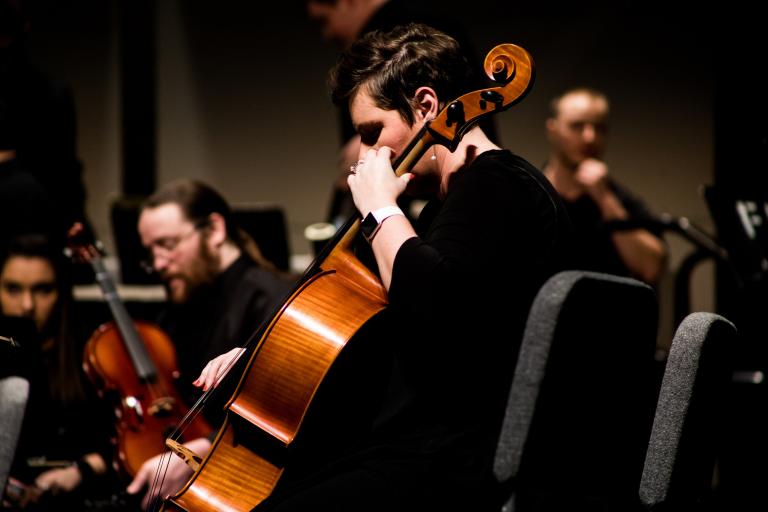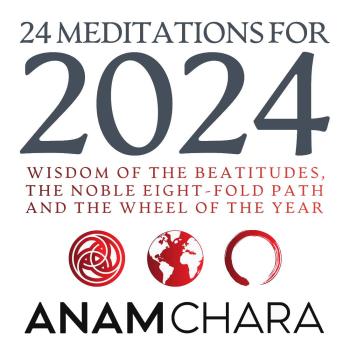Today’s post is by a guest author, Dr. David Rensberger, author of Johannine Faith and Liberating Community.
I’m a fan of the Atlanta Braves, and one day this summer I watched a pregame interview with two Braves players. They weren’t starters, but guys who sit on the bench and may go two or three games without playing. Nevertheless, they perform at a high level when called on. The interviewer asked them how they manage to be ready to play so well at a moment’s notice. They both said the same thing: routine. They have settled routines of practice, study of other teams, and working out. Doing this day in and day out leaves them prepared mentally and physically when they’re called on to play.
This led me to think about the role of routine in the spiritual life. Christian monks, nuns, and hermits have routines of prayer, work, and reading that build up their spiritual “fitness.” Anything that undermines this routine invariably leads to decline (Kathleen Norris treats this topic superbly in her book Acedia and Me). Ever since the days of the desert fathers and mothers, much of monastic life has simply been keeping up a routine—“grinding out at-bats,” as the ballplayers say. As aspects of monastic or contemplative life are being adopted by people outside the cloister today, we may ask whether the practice of spiritual routine might be taken up as well.
In a recent post here (A Reason Why Liturgy Matters), Carl asked, “Why pray out of a book . . . over time you keep praying the same words over and over. Why do it?” That’s a question that my Mennonite tradition might be more likely to pose than Carl’s Roman Catholic context. By and large, Mennonites have not valued spiritual routine or prayers from books, instead emphasizing worship and prayer that are spontaneous, arising from the heart in the immediate situation. Routine prayers are “dead routine,” rote repetition that does not touch the spirit. I suspect that a lot of people who see themselves as “spiritual” rather than “religious” might agree with that.
I certainly believe in and practice prayer any time, anywhere, in any words that are appropriate. But I’ve come to value spiritual routine as well. Arthur Paul Boers (who has pastored Mennonite churches) suggests in his book Day by Day These Things We Pray that prayer at set times can help focus us on God at all times. it can lead us toward continuous prayer, continuous presence to the presence of God. Regular practices of prayer can reorient our entire lives toward God, so that not only designated moments of prayer but all of life becomes holy.
Boers adds that such rhythms of prayer, anchoring encounter with God in the flow of daily life, can be a way of resisting the inhumane schedules many of us endure at work or school. The oppressive daily grind can be resisted with a counter-structure, one on which authentic life can climb like a rose on a trellis. Our ordinary lives are far from unstructured or spontaneous. That may actually be one thing that draws people toward spiritual seeking in the first place, looking for genuine meaning in the midst of a pointless maze of routine.
So shouldn’t our inner lives be free of routine, creative and unrestricted? Yet there is no creativity without limits. Creativity needs boundaries to push against and give it shape. The potter needs solid clay and a wheel. Even the most stream-of-consciousness writers have a vocabulary and a grammar to work with—and if they’re going to get anywhere, a time of day to sit down and write.

In an old joke, a tourist in Manhattan spots someone with a violin case and asks them how to get to Carnegie Hall. The musician just smiles and says, “Practice, practice, practice.” Frequent practice is also essential in the spiritual quest, where we are often trying to unmake long-ingrained habits of thought and action and create more positive patterns. Of course, the relation of routine to spontaneity in the spiritual life is a matter for personal discernment: different gifts, personalities, circumstances, and callings all come into play.
And spiritual routine can take many forms. It may include short periods of prayer, formal or spontaneous, verbal or silent. It may include reading or walking, music or journaling. A simple turn toward God, toward the Transcendent, a few moments of stillness and awareness once an hour or so, can be enough to keep us connected and directed.
I’ve found it easy to welcome the idea of spiritual routine into my daily life; but promising myself something is not the same as doing it! Old habits die hard, and new ones are difficult to introduce. I’ve long had a practice of morning prayer first thing in the day, followed by a period of centering prayer. I’d like to add noonday and evening prayer to these, and another time of centering. I’ve got a long way to go; but occasional moments of attentive silence are a good start. Having a gentle alarm on my computer or phone helps.
But I still have to respond to the alarm, and open myself to a deeper and more ordered way of living.
Yet I’m convinced that having a routine of spiritual practices woven into my daily activities will help me be ready to “get in the game.” Work, relationships, and social life all present challenges that call for spiritual and ethical preparedness. Having routine practices structured into the day can help us frame these challenges in larger contexts of religious, spiritual, or transcendent values, and respond to them more authentically and lovingly than we might otherwise. Far from being dead, a spiritual routine can in fact be thoroughly life-giving.
Enjoy reading this blog?
Click here to become a patron.














